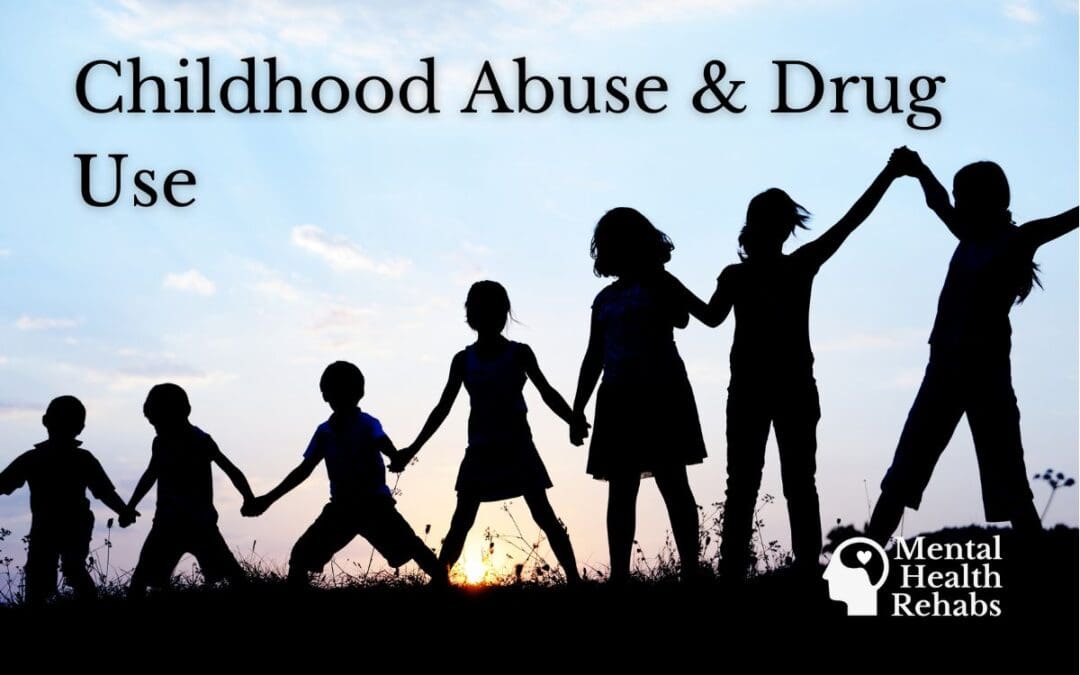The close relationship between traumatic events like childhood abuse and drug use has long been recognized and understood through the trauma model of substance abuse. This model reasons that traumatic experiences during childhood can contribute to the development of substance use disorders and reinforce behaviors that lead to them. However, a new study originally published in Addictive Behaviors has shed more light on this phenomenon through empirical testing of what was previously, just a concept.
The research study aimed to investigate the relationship between childhood trauma and substance use by building upon the existing understanding of the trauma model of substance abuse. It involved a short questionnaire given to 1,040 individuals. The purpose was to gauge the types of abuse the participants experienced (if any) and details of self-reported drug use.
The findings were groundbreaking, revealing not one, but two pathways from childhood trauma to substance abuse. The study also revealed that the type of abuse could be predictive of the types of substances an affected individual would later use. By better understanding the cause of drug abuse and the ‘why’ of what a person does, there’s tremendous potential to improve trauma-related addiction treatment and recovery.
Why Childhood Abuse and Drug Use Go Hand In Hand
The trauma model of substance abuse proposes that traumatic experiences, especially those experienced during childhood, are conducive to addiction because individuals end up turning to substance use as a coping mechanism. Substance use can provide a temporary escape from the negative emotions and memories associated with the traumatic event. Addiction is the accidental outcome of their pursuit to alleviate the distress and emotional pain caused by their trauma.
What separates this study from the existing understanding of the trauma model is the emphasis on dissociation–a mental process that involves a disruption of consciousness, perception, emotion, memory, identity, motor control, and behavior. But for others, dissociation is intentional, a way to protect their minds from reckoning with a hurtful past. In others, however, this behavior can be unintentional — so much so that they don’t even realize they are dissociating.
The latter presented a new angle on the link between trauma and drug abuse. Not so much because of the finding itself, but because of the reasoning behind this discovery and its implications. Victims of childhood trauma may unconsciously engage in disassociating behavior as a means of self-preservation — once again, a common reaction to surviving trauma. However, the added layer of experiencing something negative at a young age compounds the issue. Lacking social, physical, and mental developments, they face an inherent reduced cognitive ability for processing their feelings, which is inherently difficult, even for adults. The likelihood of a childhood trauma victim using dissociation to cope becomes even higher.
From this, the two pathways were determined, one direct and one indirect. The direct pathway in which childhood trauma leads to self-medication is when the individual uses drugs for the purpose of soothing painful emotions related to trauma. The indirect pathway is when childhood trauma leads to drug use via psychological dissociation, as a way to avoid experiencing negative feelings in the first place.
How Childhood Trauma Can Predict the Type of Drug Use
The study confirmed that the worse the trauma a child experienced, the greater the likelihood to disassociate and use drugs — no surprise there. However, with a better understanding of the motive behind drug use by childhood trauma victims, researchers were able to recognize a pattern in these childhood trauma survivors’ drug usage.
Childhood victims of emotional abuse and neglect were more likely to seek calming substances, such as opioids like heroin, or other sedatives. However, children who experienced sexual abuse were more likely to use substances that alter their perception and consciousness such as LSD or methamphetamines, in addition to drugs that calm the nervous system.
Treating Trauma-Related Substance Abuse
This study reaffirms the trauma model of substance abuse’s emphasis on the importance of addressing underlying psychological distress when treating substance use disorders. Effective treatment must have an understanding of emotional factors that contribute to substance use and ultimately, help individuals heal from the trauma. Without addressing the root cause of addiction, the odds of lasting abstinence is low.
To accomplish this, addiction treatment programs for victims of trauma should include exercises in:
- Greater self-awareness: Recognizing one’s emotional and mental state and understanding why they feel that way
- Emotional regulation: Important for proper coping and self-express
- Cognitive skills: Critical thinking, memory, ability to focus, etc.
If you or a loved one experienced trauma at any point, your past may be influencing your current actions more than you know. Talk to a mental health therapist today.
Source: https://www.sciencedirect.com/science/article/abs/pii/S0306460322001976

